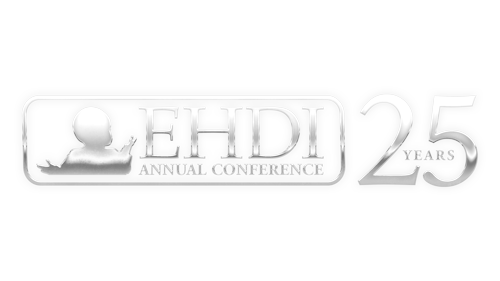2026 Early Hearing Detection & Intervention Conference
March 15-17, 2026 • Jacksonville, FL
3/19/2024 | 9:40 AM - 10:05 AM | The Deafblind Child Count: Identifying Deafblind Infants Takes a Village | Capitol 7
The Deafblind Child Count: Identifying Deafblind Infants Takes a Village
Children ages birth - 21 who are deafblind have unique needs that require specific interventions to create access and build foundational skills to achieve developmental outcomes and successful engagement in instruction. A large number of those who are deaf-blind are not identified as such and therefore do not have access to appropriate interventions and opportunities. The National Center on Deafblindness is using the National Deaf-Blind Child Count and other information to draw attention to under identification through a range of efforts such as analyzing and using data to highlight disparities and needs, building collaborative relationships to improve identification, and producing information to raise awareness.
Deafblindness has a profound impact on a child’s ability to access and develop communication, language, and concepts. Supporting families through the identification process is an integral first step in supporting infants and toddlers who are deafblind. A deeper understanding of their unique needs will increase the ability of families to partner with providers and identify services that support their child’s development. Compounding the already complex issues of identification is that approximately 87% of children and youth who are deafblind have multiple disabilities. Limited research and a range of anecdotal information from professionals in the field suggests the prevalence of vision and hearing impairments in the population of individuals with multiple disabilities is significantly higher than currently reported. This presentation will discuss strategies to improve identification and referral of children who are deafblind.
- Participants will increase knowledge of the under identification of infants and toddlers through observing and discussing the national deafblind child count data
- Participants will learn what collaborative relationships exist across the US between EHDI, H & V, and state deafblind projects
- Participants will identify what activities and efforts could be pursued in their states to improve identification of deafblind infants and referral to state deafblind projects
Presentation:
3478265_16453EmmaFricke.pdf
Handouts:
Handout is not Available
Transcripts:
CART transcripts are NOT YET available, but will be posted shortly after the conference
Presenters/Authors
Marcia Fort
(Primary Presenter), NC DHHS, marcia.fort@ddhs.nc.gov;
Dr. Fort is the Genetics and Newborn Screening Unit Manager in the Whole Child Health Section of the North Carolina Division of Child and Family Well-Being and serves as the NC EHDI Coordinator. Marcia has worked with the NC EHDI program since 2002. Dr. Fort has 32 years of experience as a pediatric audiologist in hospital, private practice, ENT office and public school settings.
ASHA DISCLOSURE:
Financial -
Nonfinancial -
AAA DISCLOSURE:
Financial -
Nonfinancial -
